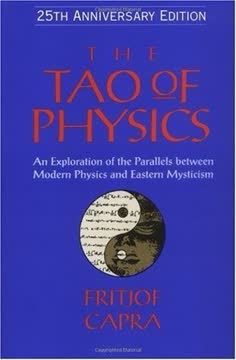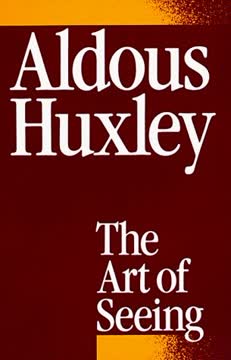Key Takeaways
1. The Perennial Philosophy: A Universal Foundation
Rudiments of the Perennial Philosophy may be found among the traditional lore of primitive peoples in every region of the world, and in its fully developed forms it has a place in every one of the higher religions.
A Timeless Truth. The Perennial Philosophy is not a modern invention but a recognition of a divine reality that underlies all existence. This philosophy, with its emphasis on a transcendent and immanent Ground, is found in various forms across cultures and throughout history, from the lore of indigenous peoples to the sophisticated theologies of major religions.
Core tenets:
- A divine Reality substantial to the world of things, lives, and minds.
- A psychology that finds in the soul something similar to, or even identical with, divine Reality.
- An ethic that places man's final end in the knowledge of the immanent and transcendent Ground of all being.
Highest Common Factor. The Perennial Philosophy represents the "Highest Common Factor" in all preceding and subsequent theologies. It is a universal language of the spirit, offering a framework for understanding the divine that transcends cultural and religious boundaries.
2. Self-Knowledge: The Core of Spiritual Awakening
The last end of every human being is to discover the fact for himself, to find out Who he really is.
Tattvam Asi. The Sanskrit formula "tattvam asi" ("That art thou") encapsulates the essence of this self-discovery. It asserts that the Atman, the immanent eternal Self, is one with Brahman, the Absolute Principle of all existence. The ultimate goal is to realize this truth experientially.
Beyond the Ego. True self-knowledge is not about understanding the personal ego but about recognizing the eternal Self within. This requires a process of "dying to self," relinquishing the ego's hold on reasoning, willing, and feeling.
The Inner Kingdom. The journey inward leads to the discovery of the Kingdom of God within. This is not a passive acceptance but an active realization, a transformation of consciousness that aligns the individual with the divine Ground.
3. Transcending the Ego: The Path to Unity
Behold but One in all things; it is the second that leads you astray.
The Illusion of Separateness. The ego, with its insistence on being a separate self, is the primary obstacle to the unitive knowledge of God. It is the "second" that leads us astray, creating a false sense of division and multiplicity.
Dying to Self. The path to unity requires a deliberate and sustained effort to "die to self" in feeling, will, and intellect. This is not a literal death but a metaphorical one, a relinquishing of the ego's grip on our thoughts, emotions, and actions.
The Oneness of All. By transcending the ego, we come to realize the essential unity of all things. This is not merely an intellectual understanding but an experiential knowing, a direct apprehension of the One within and beyond the many.
4. The Nature of the Divine Ground: Beyond Definition
Who is God? I can think of no better answer than, He who is.
The Ineffable Absolute. The divine Ground of all existence is a spiritual Absolute, beyond the grasp of discursive thought. It cannot be defined or categorized but can be directly experienced and realized.
Personal and Impersonal Aspects. The Absolute has both personal and impersonal aspects. It is the God-without-form of mystical traditions, yet also manifests as a personal God, a loving Father to whom love and allegiance are owed.
The Godhead and God. Eckhart distinguishes between the Godhead, which is beyond attributes, and God, who is manifested in creation. The Godhead is the source of all qualities possessed by the personal God, containing goodness, love, and wisdom in their essence.
5. The Interplay of God and the World: Immanence and Transcendence
The more God is in all things, the more He is outside them. The more He is within, the more without.
God Within and Without. The divine Ground is both immanent, present within the soul and the world, and transcendent, existing beyond them. Realizing this requires experiencing God in the deepest part of the soul and recognizing His presence in all things.
The World as Manifestation. The world is not separate from God but a manifestation of His being. By perceiving the divine in all things, we return to the Origin and remain where we have always been.
The Three Bodies of Buddha. Mahayana Buddhism expresses this concept through the "Three Bodies" of Buddha: the absolute Dharmakaya, the personal Sambhogakaya, and the incarnate Nirmanakaya. These represent the different aspects of the divine Ground.
6. Charity: The Essence of True Religion
He that loveth not knoweth not God, for God is love.
Love as Knowledge. Love is not merely an emotion but a mode of knowing. When love is disinterested and intense, it becomes unitive knowledge, an infallible apprehension of the divine.
Beyond Self-Love. True charity is not self-love but a selfless devotion to God and all beings. It seeks no reward and is not diminished by evil. It is a universal love that embraces all creatures.
The Inner Light. The Christian and Sufi traditions emphasize the importance of the human mind and its divine essence. Through love and devotion, the mind can realize its unity with the divine Ground.
7. Mortification and Non-Attachment: Essential Disciplines
What could begin to deny self, if there were not something in man different from self?
Dying to Self. Mortification, the deliberate dying to self, is a necessary discipline for achieving unitive knowledge. It involves relinquishing self-will, self-interest, and ego-centric thinking.
The Inner Man. Eckhart speaks of the "inner man," the heavenly person within us, who is distinct from the "outward man" of flesh and senses. The goal is to identify with the inner man, the seed of God within us.
The Threefold Way. Shankara warns against following the way of the world, the way of the flesh, or the way of tradition. True knowledge of Reality arises only when we free ourselves from these chains.
8. Time and Eternity: Reconciling the Temporal and the Timeless
God becomes and disbecomes.
God in Time and Eternity. The divine Ground has both temporal and eternal aspects. God in time is the creator and perpetual re-creator of the world, while the eternal Godhead is the timeless Ground in which all things have their being.
The Eternal Now. The timeless awareness of the spirit is the ground in which the time-bound psyche is rooted. By making ourselves pure in heart and poor in spirit, we can discover and be identified with this awareness.
The Illusion of Time. The world as it appears to common sense consists of successive events and separate things. But the divine Ground is a continuum, out of time and different in kind from the world to which language is adequate.
9. The Perils of Idolatry: Distinguishing the Real from the False
Thou must love God as not-God, not-Spirit, not-person, not-image, but as He is, as sheer, pure absolute One, sundered from all two-ness, and in whom we must eternally sink from nothingness to nothingness.
The Trap of Limited Conceptions. Worshipping only one aspect of God to the exclusion of all others can lead to spiritual peril. Legalism, quietism, and antinomianism are all potential pitfalls of a partial understanding of the divine.
The Super-Luminous Darkness. Dionysius the Areopagite speaks of the "super-luminous darkness" of the divine Truth, which is beyond both vision and knowledge. True praise involves taking away all things from Him, going up from particulars to universals.
The Hierarchy of the Real. The manifold world of our everyday experience is real with a relative reality. But this reality has its being within and because of the absolute Reality, which we can never hope to describe.
10. Grace and Free Will: A Cooperative Journey
Goodness needeth not to enter into the soul, for it is there already, only it is unperceived.
The Inner Light. The doctrine of the Inner Light asserts that the divine is already within us, only unperceived. We are saved, liberated, and enlightened by perceiving the good that is already within us.
The Will to Choose. The will is free, and we are at liberty to identify our being either with our selfness or with the divine within us. The choice we make determines our destiny.
The Divine Assistance. The Logos passes out of eternity into time to assist beings in passing out of time into eternity. The Avatar's appearance is important because he points out the means by which human beings may transcend history.
Last updated:
Review Summary
The Perennial Philosophy is widely praised as a comprehensive exploration of common truths across world religions. Readers appreciate Huxley's erudition and ability to synthesize diverse spiritual traditions. Many find the book profound and life-changing, though some criticize its anti-Christian bias or find it difficult to read. The work is seen as a valuable resource for those interested in comparative religion and mysticism, offering insights into the nature of reality, consciousness, and human purpose. However, some reviewers note its dated language and concepts.
Similar Books









Download PDF
Download EPUB
.epub digital book format is ideal for reading ebooks on phones, tablets, and e-readers.








